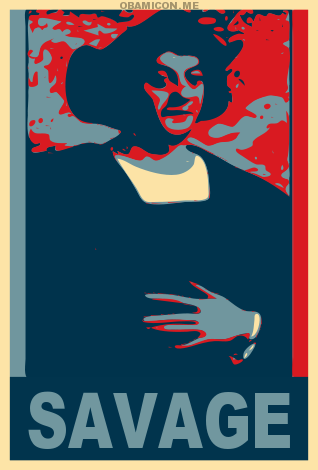Understanding Colonizer StatusBy WaziyatawinMemmi describes two kinds of colonizers: self-rejecting and self-accepting(read pages 19-76). Self-rejecting colonizers live in moral torment as they recognize the injustice of colonialism and do not want to participate in the subjugation of other human beings. They can return to their country of origin and relieve themselves of their guilt, or they can stay in the colony and continue to live a life fraught with contradictions. This is a difficult path. Memmi would even say this path is impossible to sustain. Drawing on his experience with leftist, self-rejecting colonizers, Memmi describes the point of divergence between colonizers and the colonized, “But now he [the leftist] discovers that there is no connection between the liberation of the colonized and the application of a left-wing program. And that, in fact, he is perhaps aiding the birth of a social order in which there is no room for a leftist as such, at least in the near future.”
Memmi refers to the self-accepting colonizer as a colonialist. A colonialist is a “colonizer who agrees to be a colonizer.” About the colonialist Memmi tells us, “By making his position explicit, he seeks to legitimize colonization. This is a more logical attitude, materially more coherent than the tormented dance of the colonizer who refuses and continues to live in the colony.” In the United States, nearly everyone has agreed to be a colonizer. Every day they engage in activities that continue to justify the theft of Indigenous lands, the killing and subjugation of Indigenous Peoples, and the ruthless exploitation of Indigenous resources. From birth, they begin teaching their children myths regarding the righteousness of the existing social order. That message is reinforced throughout their lives. It is hard work maintaining such lies, so whenever the colonized threaten to disrupt their myth-making, they are quickly silenced, suppressed, and further subjugated. The actions of the colonialist are predictable and consistent.I'm not sure I buy into this duality, but let's assume it's valid. I trust I and most of my non-Native readers are "self-rejecting colonizers." The author goes on to describe this type:
Memmi argues that for decolonization to occur, the colonizers must leave. In most decolonization struggles, the colonized push the colonizers to go home. This is not the position I advocate, but certainly some Dakota people will express such sentiments. How will you respond to this?
If you are a colonizer rejecting colonizer status, are you willing to do whatever is necessary to assist in our liberation struggle, including killing, dying, or life-imprisonment?
Are you willing to work to challenge the status quo rather than maintain it?
Are you willing to take on a lifetime of ambiguity, uncertainty, moral torment that is the life of a colonizer who rejects colonizer status?
Are you willing to constantly engage in critical self-reflection and routinely have your white colonizer programming challenged?Answers: No, yes, yes, yes. I think we're beyond the point of killing or dying for Native rights. Most Indians made a deal to work within the system, even though the system was forced on them. If they didn't kill themselves, I'm not going to either.
For some challenges to the status quo, see
Pro-Colonization Propaganda in Up in
Land Theft in My Little Pony.


No comments:
Post a Comment